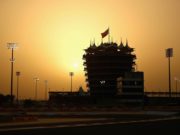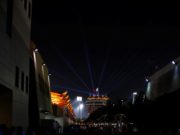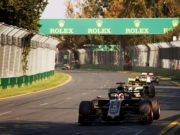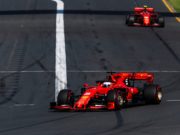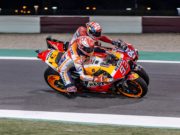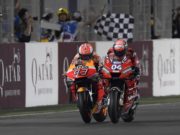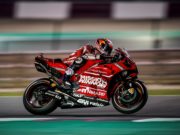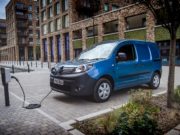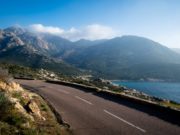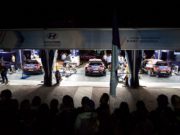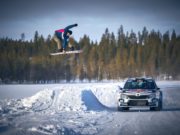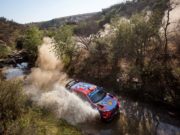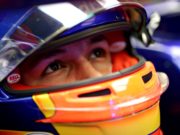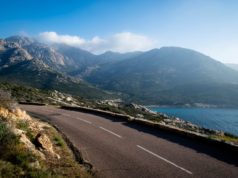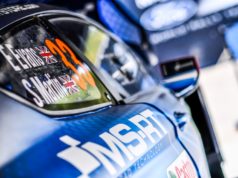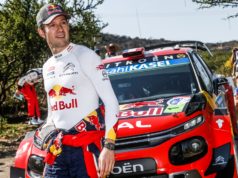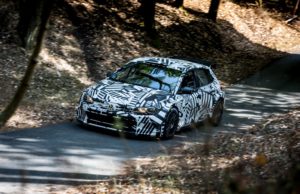Following rounds in Argentina and Portugal, the WRC visits another country where rallying is practically a religion. Italy drivers and manufacturers have a key role in the history of the World Championship. On the WRC calendar, Rally Italia Sardegna replaced in 2004 the legendary Rallye Sanremo. The competitors were introduced to road surfaces and conditions that were very different to those on the Italian Riviera.
On the Mediterranean island, the stages are incredibly demanding, for the drivers, cars and tires alike. Thick vegetation surrounds the narrow and twisty gravel roads, hiding the large rocks that the drivers are well advised to avoid hitting with their wheels. As the ground is invariably covered with a thick layer of sand and dust, the running order tends to be of critical importance on the first pass on the stages. The challenge is different again on the second run: the drivers have to cope with ruts that become deeper as more cars complete, as well as the bedrocks that can become exposed… almost anywhere! Bearing in mind that temperatures may approach 30°C during the weekend, it is easy to see why many crews are apprehensive about this seventh round.
?? @Rally_d_Italia (8-11 June) map by @fia pic.twitter.com/yxNjsu0H4a
— WRC (@OfficialWRC) June 4, 2017
 Rally Italia Sardegna comprises 312.66 competitive kilometers of action run across 19 stages
Rally Italia Sardegna comprises 312.66 competitive kilometers of action run across 19 stages
The rally base and service park are situated in the west coast town of Alghero once again. It is near to this location that the rallying begins on Thursday evening, with the running of a Super Special Stage at the Ittiri Arena, before crews overnight in Olbia on the opposite coast.
Friday features four stages run twice across a total of 125.46km, including the return of two classic rough and rocky tests – Terranova and Monte Olia.
Saturday is the longest and toughest leg with 143.16km divided over six stages in the Monte Acuto region, while Sunday’s finale is identical to that of 2016, with two repeated stages covering 42.04km.
The Italian WRC counter has its origins in a mixed surface event based in Sanremo, known as the Rally of the Flowers, which was first held in 1928. It featured in the inaugural WRC schedule in 1973 and only moved to its current gravel format and location on the Mediterranean island in 2004.
Crews must be able to adapt their style for the loose and slippery gravel of initial stage runs, as well as the rutted roads that they will face during second passes. Just like in Rally Portugal, tire choice management could well prove crucial.
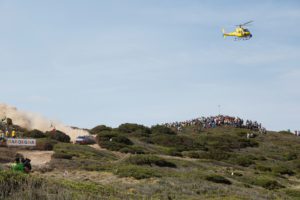 Rally Italia Sardegna means
Rally Italia Sardegna means
- A tough test for the crews and cars in ambient temperatures reaching 30 degrees centigrade along narrow gravel roads that leave no room for error and often become rutted, because the crews repeat stages. Once again, the rally’s base is in the northwest coastal town of Alghero, with the nearby Ittiri Arena Show kicking off the action on Thursday evening. Then it’s all change, however, with the crews parking up overnight in Olbia on the opposite coast before tackling two classic stages – Terranova and Monte Olia – which are back in the line-up for Friday.
- While Friday’s running includes four stages run twice over 125,46km, Saturday provides the most action as it did in 2016, with six stages in the Monte Acuto area covering 143,16km. It includes the punishing Monte Lerno test, which features the famous Micky’s Jump that always attracts huge crowds.
- Sunday’s final leg is a repeat of last year’s stages with two tests covering 42,04km north of Alghero and featuring the Sassari-Argentiera Power Stage before the traditional finish in Alghero’s harbor area.
- Past winners of Italy’s WRC counter include Michèle Mouton, who became the first and only woman to win a world championship round when she claimed top honors on Rallye Sanremo in 1981.
- The Rally d’Italia name is in use since 1972 when Rallye Sanremo got it, as it hosted Italy’s round of the WRC from 1973 until 2003. Since 2004, the event takes place on the Mediterranean island of Sardinia.
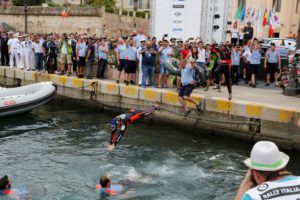 Recent winners
Recent winners
| 2016 | Thierry Neuville/Nicolas Gilsoul | Hyundai New Generation i20 WRC |
| 2015 | Sébastien Ogier/Julien Ingrassia | Volkswagen Polo R WRC |
| 2014 | Sébastien Ogier/Julien Ingrassia | Volkswagen Polo R WRC |
| 2013 | Sébastien Ogier/Julien Ingrassia | Volkswagen Polo R WRC |
| 2012 | Mikko Hirvonen/Jarmo Lehtinen | Citroen DS3 WRC |
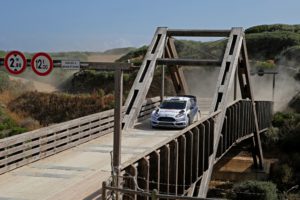 Rally Italia Sardegna schedule (GMT+1)
Rally Italia Sardegna schedule (GMT+1)
Thursday 8 June
8.00am: Shakedown (Olmedo – Monte Baranta)
5.00pm: Start (Alghero)
6.00pm: SS1 – Ittiri Arena Show (2.00km)
8.31pm: Parc ferme (Olbia)
Friday 9 June
6.30am: Tyre fitting zone (Olbia – 10 mins)
7.18am: SS2 – Terranova (14.54km)
7.41am: SS3 – Monte Olia 1 (19.05km)
9.12am: SS4 – Tula 1 (15.00km)
10.17am: SS5 – Tergu-Osilo 1 (14.14km)
11.56am: Service A (Alghero – 30 mins)
3.25pm: SS6 – Terranova (14.54km)
3.48pm: SS7 – Monte Olia 2 (19.05km)
5.25pm: SS8 – Tula 2 (15.00km)
6.30pm: SS9 – Tergu-Osilo 2 (14.14km)
8.10pm: Flexi Service B (Alghero – 48 mins)
Saturday 10 June
5.00am: Service C (Alghero – 18 mins)
7.45am: SS10 – Coiluna – Loelle 1 (14.95km)
8.41am: SS11 – Monti da Ala’ 1 (28.52km)
9.20am: SS12 – Monte Lerno 1 (28.11km)
12.11pm: Service D (Alghero – 30 mins)
3.08pm: SS13 – Coiluna – Loelle 2 (14.95km)
4.04pm: SS14 – Monti da Ala’ 2 (28.52km)
4.43pm: SS15 – Monte Lerno 2 (28.11km)
7.24pm: Flexi Service E (Alghero – 48 mins)
Sunday 11 June
7.30am: Service F (Alghero – 18 mins)
8.33am: SS16 – Cala Flumini 1 (14.06km)
9.08am: SS17 – Sassari – Argentiera 1 (6.96km)
9.28am: Regroup (Palmadula – 60 mins)
10.54am: SS18 – Cala Flumini 2 (14.06km)
11.20am: Regroup (La Pedraia – 45 mins)
12.18pm: SS19 – Sassari – Argentiera 2 – Power Stage (6.96km)
1.15pm: Service G (Alghero – 10 mins)
1.45pm: Podium


